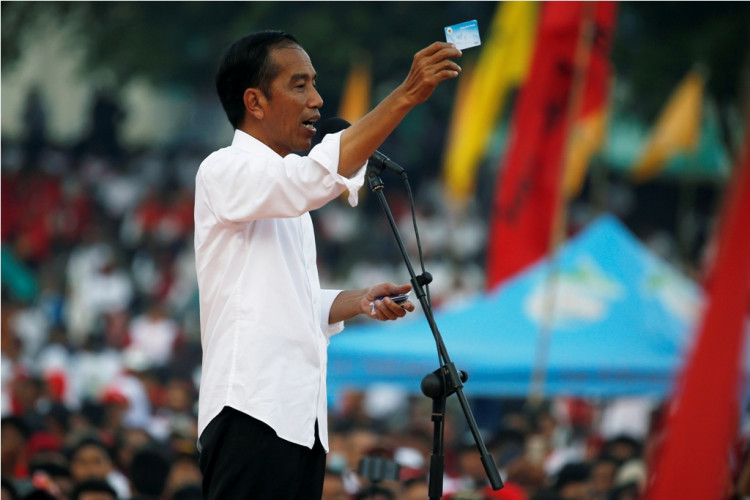A witness for retired General Prabowo Subianto's campaign team has refused to sign the official results handed down by Indonesia's General Election Commission (KPU). The KPU confirmed that incumbent President Joko "Jokowi" Widodo emerged victorious from last month's general elections.
"We won't give up in the face of this injustice, cheating lies, and these actions against democracy," a Prabowo campaign team witness, Azis Subekti, reiterated as the team refused to validate the KPU's official results, The Guardian reported.
The KPU revealed that Widodo took home 55.5 percent of the total presidential votes while Prabowo garnered only 44.5 percent. Before the official results were rolled out on early Tuesday morning, Prabowo said claimed that Jokowi's side cheated.
Ahead of Tuesday's big reveal, authorities and Indonesian police prepared barbed wire and armored trucks to guard the KPU office. It was also revealed last week that local police took 30 suspected militants under custody. At least three opposition figures have been interrogated for treason allegations.
Channel News Asia reported that the election results were announced due to fear of potential protests from Prabowo's supporters, as the former general predicted shortly after unofficial results suggested that Widodo had won. The second-term president has yet to comment on protests regarding his win.
The Indonesian elections commission said the ruling on Jokowi's second victory over Prabowo "will be effective immediately." While Prabowo vowed earlier that he would challenge Jokowi's victory in court, he has yet to confirm if he will contest the official announcement.
Meanwhile, analysts are expecting Widodo to face extreme resistance from people who believe the incumbent president should be focusing on other aspects of the economy rather than his infrastructure initiatives.
Asia Economist at Capital Economics, Gareth Leather, argued that the Indonesian economy will not achieve Jokowi's initial goal of seven percent in growth if the country's manufacturing sector isn't improved, the Financial Times reported.
For many economists, Indonesia's manufacturing sector contributes largely to the overall gross domestic product (GDP) of Southeast Asia's largest economy. Furthermore, finance experts noted that the Jokowi will need to work on attracting foreign investors.
Former Finance Minister Muhamad Chatib Basri said foreign direct investments (FDIs) will help boost economic growth. He said the government should work to improve the country's per-capita income to ensure that Indonesia will have enough to support itself as the population ages.
Jokowi's win has been received with mixed reviews from political analysts. Some said he will do better on his second presidential term. Others believe patronage networks that Indonesian politics is known for will most likely block his plans for reform.






